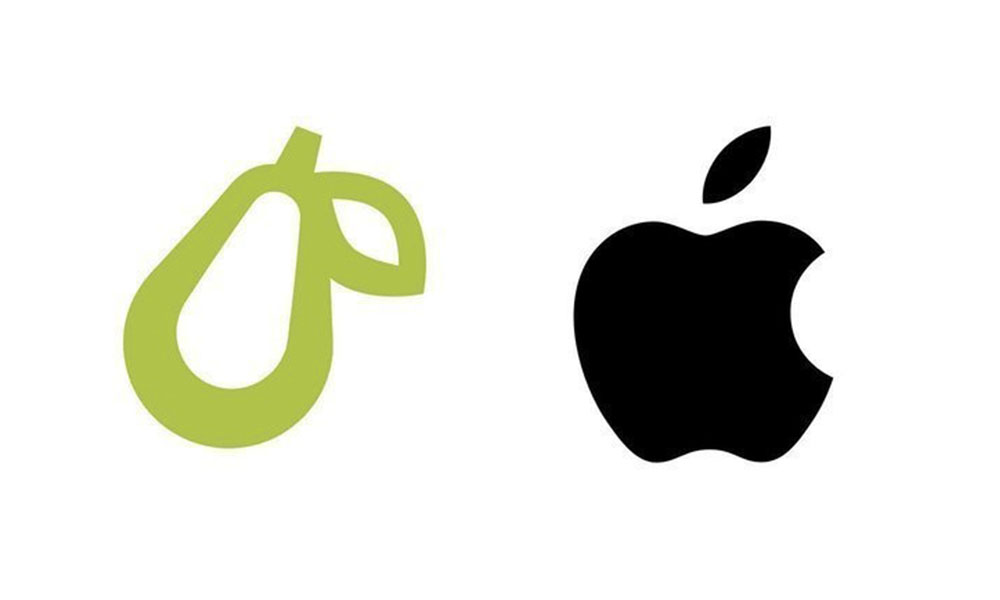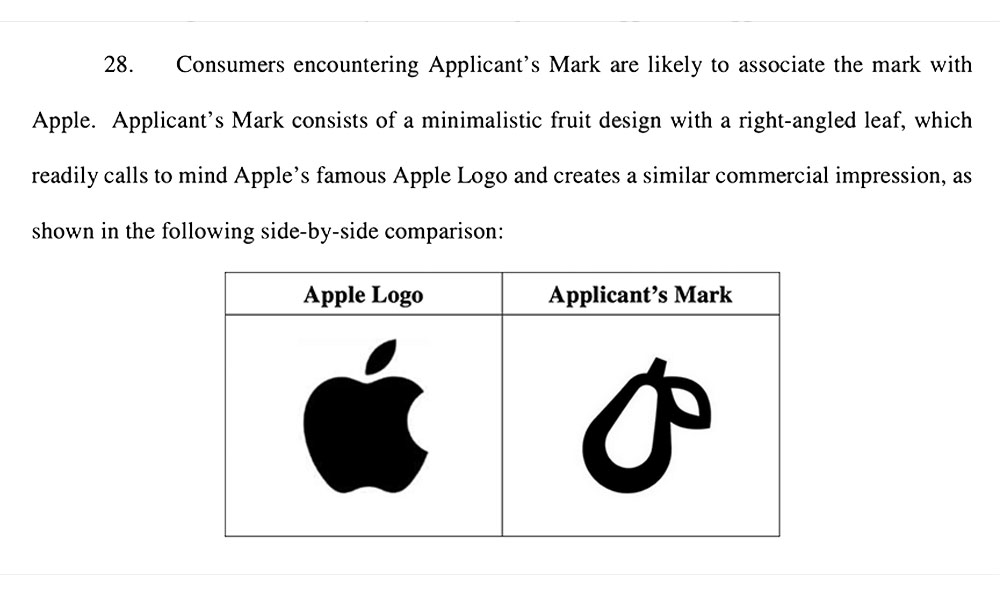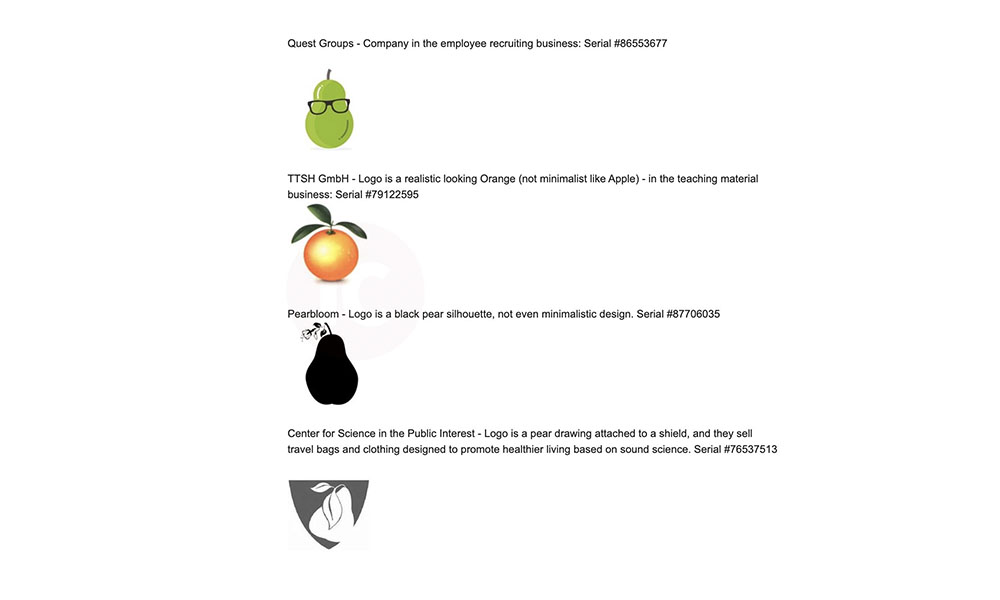Apple Is Fighting Against This Small Company’s Pear Logo, Claiming It Will Confuse Customers
 Credit: Super Healthy Kids
Credit: Super Healthy Kids
Toggle Dark Mode
As Apple continues to fight antitrust investigations on multiple fronts, not to mention the usual collection of patent lawsuits, it seems that its legal department still has the time to bring trademark infringement claims against small companies who dare to use fruity logos.
Such is the case with Prepear, a grocery list and meal planner app from the small developer behind Super Healthy Kids, which iPhone in Canada discovered over the weekend was under a legal attack from Apple due to the alleged similarity of its pear-shaped logo with the iconic Apple fruit.
The team at Super Healthy Kids shared an Instagram post over the weekend showing the two logos side by side while adding that Apple has opposed its trademark claiming that the pear logo is too close to the Apple logo and that it “supposedly hurts their brand.”
What’s notable is that Prepear and Super Healthy Kids are not in a business that’s even remotely related to Apple beyond the fact that it develops an app that can run on iPhones. However, the app doesn’t overlap with any of Apple’s own apps — it’s simply a recipe management, meal planning and grocery list/service app.
Super Healthy Kids is also a really small outfit, with only five staff, so it clearly doesn’t have the resources to actually go up against Apple’s legal team, which it says will cost tens of thousands of dollars.
In fact, Prepear co-founder Russell Monson says that this “frivolous litigation” has already cost them “many thousands of dollars” and actually resulted in them having to layoff team members.
So now Prepear has chosen to take its case to its fans and customers via Instagram and a petition on Change.org that’s calling out Apple on abusing its power and bullying not only Prepear but many other small businesses.
Monson notes that he’s not calling for a boycott of Apple’s products, but he does feel a moral obligation to take a stand and fight for the right to keep his logo, as well as helping to “hold big tech companies accountable to the public for their bad behaviour.”
It is a very terrifying experience to be legally attacked by one of the largest companies in the world, even when we have clearly done nothing wrong, and we understand why most companies just give in and change their logos.
Russell Monson, Prepear co-founder
Monson also adds that his is far from the first to go down this road, claiming that Apple “has done this to dozens of other small business fruit logo companies” and that most have either given up their logos or been forced to close their doors.
Apple’s Claim
Some digging by MacRumors turned up the trademark opposition paperwork filed by Apple, a 352-page document in which the company shows black and white versions of both marks, with a claim that “Consumers encountering Applicant’s Mark are likely to associate the mark with Apple,” due to its presentation of a “minimalistic fruit design with a right-angled leaf, which readily calls to mind Apple’s famous Apple Logo and creates a similar commercial impression.”
While there’s a school of legal thought that Apple may need to quash every logo that’s even remotely similar in order to protect its brand, lest it set a precedent, it seems that Apple is being extremely overzealous in its approach by going after companies that aren’t even in the same business that are using any kind of fruit-based logos at all.
Speaking with iPhone in Canada, Monson shared several examples of other companies that had their logos similarly quashed by Apple’s battalion of lawyers, including a recruiting company that used a pear logo, and a teaching materials business that used a realistic-looking orange. These companies gave up in the face of Apple’s opposition, choosing to change their logos entirely instead of getting embroiled in a legal battle that they were unlikely to win, but Monson has said he actually hopes to use this as an opportunity “to expose this practice by Apple.”
MacRumors also shares several other examples of companies that have suffered the wrath of Apple’s legal department for using logos that it felt were too similar to its own, including a German Cycling path, and a Norwegian political party. Although in both cases the logos were more clearly apples, and not pears or oranges, but it’s hard to believe that anybody would confuse them with the iconic Apple logo, particularly considering how different the uses were.
Monson also outlines how Apple’s legal team also seemed determined to draw the trademark opposition procedures out, likely in the hopes of winning by attrition. He told iPhone in Canada that Prepear filed its trademark back in January 2017, and the U.S. Trademark office told them it was “not in conflict” with any other registered trademarks as far as they were concerned, but of course they were required to publish it for opposition to give other trademark holders an opportunity to challenge it. Which Apple did.
However, according to Monson, Apple actually filed its opposition “on the last day of the window to oppose the trademark,” and then proceeded to file for additional extensions after that, leaving the whole case in legal limbo, which Monson said “seemed designed by their legal team to be made as long, difficult, and expensive as possible for us.”
Since Apple normally seems like such a friendly company on the surface, Monson also said that he and his partners were “naive enough” to think that they could perhaps simply discuss the matter with Apple rationally, since both logos look different. Unfortunately, Apple’s lawyers weren’t interested in being rational, and refused to discuss the matter, pushing it on instead into the discovery phase, after which it would ultimately proceed to trial.
This was the point at which Prepear realized that it was talking to a brick wall in terms of trying to convince Apple to back down, and it wasn’t going to be able to afford to continue fighting this battle through normal legal channels. Hence, Monson decided to start a petition, believing that “once the public is aware of Apple’s position on this that Apple will be more willing to drop the case rather than have the public see how they are clearly harming us for no apparent justifiable reason.”
[Apple should] stop attacking small businesses like ours in frivolous cases that seem designed to cause us to spend as much money and time thinking about the case instead of focusing on how to grow our business and ensure we survive the current economic crisis.
Russell Monson, Prepear co-founder
Prepear says that it will be handing its petition — which is already approaching 30,000 signatures — to Apple in the hopes that it will encourage the company to drop the case before it actually gets to the very expensive discovery and trial phases.








